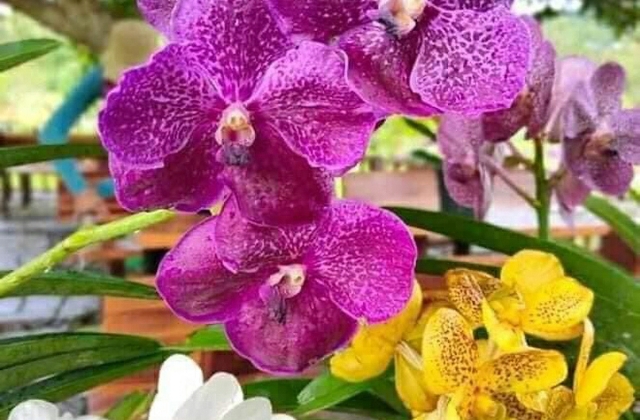Best Compost For Orchids – How To Make It?

Best compost for orchids usually depends on the type of orchid you have as well as where you’re planting them. In a warm climate, there’s no need to use as much compost as in a colder climate. You may want to use a soil conditioner to make the soil more fertile. If you’re planting in a warm climate, your orchid plant will need fertilizer and water often. So choose a compost that suits you best and your orchid, Ideally, orchids need a free draining compost, preferably orchid bark compost orchid compost, as these would better support your orchid plants.
Planting orchids can be rewarding for you and your orchid plants. It takes a lot of work and patience. Planting orchids is also a difficult process. If you’re planting orchids, the best compost for orchids would include calcium carbonate, black walnut shells, fish emulsion, juniper wood chips, juniper berries, manure from red clover, bloodroot, and dung beetles.
When growing orchids, you should consider that your orchids like a lot of sunlight and warmth. In a cold climate, you should place your orchids in pots in the sun. Your orchids likes moist soil, but it should be well-drained. Your orchid plants should have direct access to the water container. If your orchids or pots or planters are not in direct sunlight or if they are in a place where the water drainage is not possible, it’s okay to place them in a window box or a shallow dish of water.
Watering your orchids is also one important part of growing orchid plants. If you give them enough water, your orchid plants will grow well. You need to check the moisture level frequently during the day or the evening. In the daytime, you can simply wait until the soil is dry and you do not water the plant. In the evening, after the sun goes down, it’s best to water your orchid roots.
A good compost can also help your orchids grow. The best compost for orchids is organic. Organic material is better for orchids than artificial material since orchids need more air and moisture. If you add too many artificial materials to your soil, your plants will have to spend more time on the land.
When making the best compost for orchids, it is advisable that you place the pots upside down. This way, the roots are easier to reach. Before placing your plants in the containers, you must make sure that there are no heavy insects or weeds that could destroy the plants before planting them. Remember that your plants will need a lot of light, so provide them with bright lights at night.
Once you have placed the plants in the containers, you must let them sit for a couple of days. Letting them sit gives them enough time to acclimatize themselves to the new environment. During this time, you can mulch the soil. This will help your orchids adapt faster to their new environment.
When making the best compost for orchids, remember to mulch your plants. This will help retain moisture for your orchids. It will also help keep fungus and mildew at bay. And lastly, do not feed your orchids too soon.
You can feed your orchids once a month, but once a week is better. You must also water your plants well while feeding them. Just don’t over-water them because it will also be more difficult for them to absorb the nutrients from the fertilizer. Orchids also require regular pruning, so be sure to thin out the plants regularly.
To make the best compost for orchids, you need to use organic waste materials. Compost made from food waste and leaves are the best. You can also recycle milk and juice bottles to make it into great compost. Canned green beans also decompose nicely if you soak them in water overnight.
When making the best compost for orchids, you must consider the type of plant you have. Although most of them can go into a compost heap, some may need to be finely chopped first. There are also different types of orchids, depending on their size, including the small, bush, rocker, and dwarf orchid. To make the best compost for orchids, know your plants inside and out!